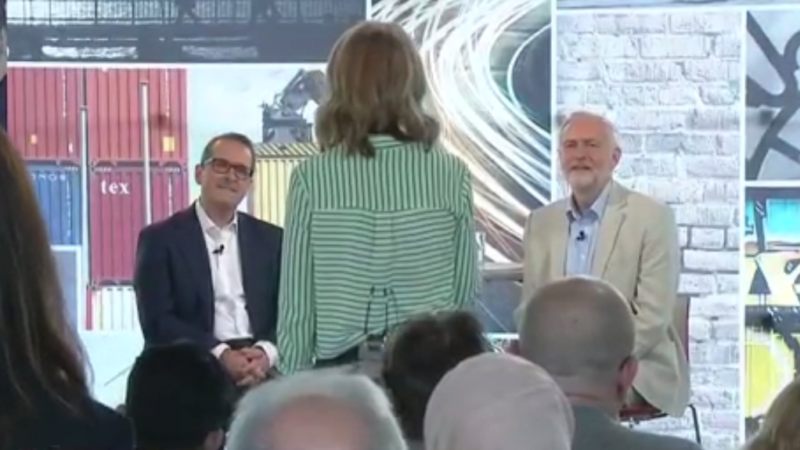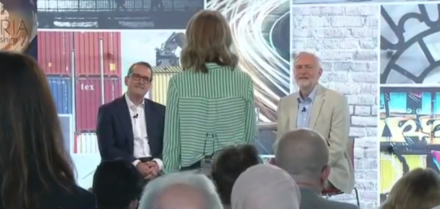

This morning saw the third hustings of this summer’s leadership contest between Jeremy Corbyn and Owen Smith. It took place in Nottingham, and was aired live on the Victoria Derbyshire Show. Here are a few things to take away from the debate:
‘Fiscal responsibility’ is long gone
Both Corbyn and Smith are going big on their investment package pledges, with each talking in the hundreds of billions for how much they would seek to put into infrastructure projects and public services. With passionate defences of anti-austerity, holding back on public spending is clearly off the table, and not much time is spent on how the spending commitments would be funded, either. A rise in corporation tax is expected to cover a lot of ground, as is the return of the 50p tax rate for high earners – and Smith wants a new tax rate for the top one per cent of earners too.
Last summer, much of the debate centred around the need to be seen as “fiscally responsible” by the general public, but this year’s debate appears to take growth based on investment as the accepted basis of Labour’s economic argument.
Foreign policy can be tricky
The most surprising element of today’s debate was Smith appearing to advocate peace talks with ISIS as a solution to problems in the Middle East, while Corbyn baulked at the suggestion. Smith’s camp quickly issued a statement following the debate to try and clear up the matter, saying there should be “absolutely no negotiation” with ISIS “until they renounce violence”. However, the press, the Tories, and the Corbyn campaign (who said the remarks were “hasty and ill-considered”) had all already had their say on the matter.
Not knowing who Ant and Dec are won’t matter
Jeremy Corbyn failed to identify Ant and Dec in the pop culture round of today’s debate – but, given the pinnacle of their career, Let’s Get Ready to Rhumble, was released the same month as Tony Blair became Labour leader, it’s probably not that big a deal.
Labour is struggling to talk about its internal problems
There is widespread belief that reports of abuse, anti-Semitism and a general toxic feeling throughout the party are being ‘weaponised’ for factional gain. It is no easier to get a sense of that than when it is raised at these hustings – many in the audiences audibly bristle at the suggestion. These reactions are going to make exacerbate these problems and make it harder to deal with them.
A Corbyn victory?
The audience at the hustings was split into three groups: a third were Corbyn supporters, a third were Smith supporters, and a third were undecided. At the close of the debate, the undecideds were asked if they had been swayed by what they’d seen and a large majority opted for the current Labour leader.
While the victory for Corbyn in the studio was overwhelming, we probably learn more from the reaction to it – people attending a leadership debate on a Wednesday morning may not be the most representative, after all.
On social media afterwards, some supporters of both candidates saw bias: there were Smith backers who believed some supposed undecideds had been duplicitous Corbyn fans all along, while a number of Corbynites hailed a victory despite BBC bias. They, too, may not be wholly representative, but it does reinforce a wider feeling that neither side expects the other to play fair. The longer term implications of that lack of trust within the Labour Party do not look great.



More from LabourList
Frank Field and David Marquand: Tributes flow in to ‘social justice crusader’ and ‘giant of social democracy’
‘National flags and identity can be inclusive – we’re right to embrace them’
Revealed: Claims of bullying, misogyny and harassment in Young Fabians